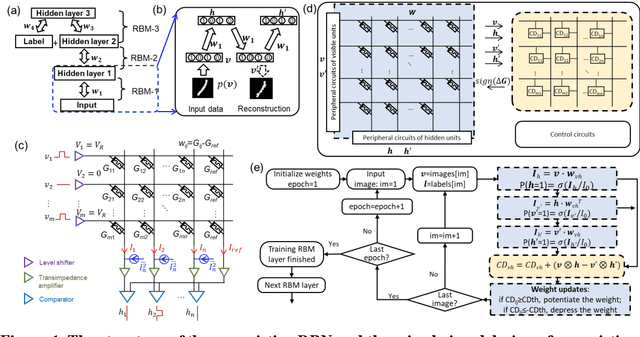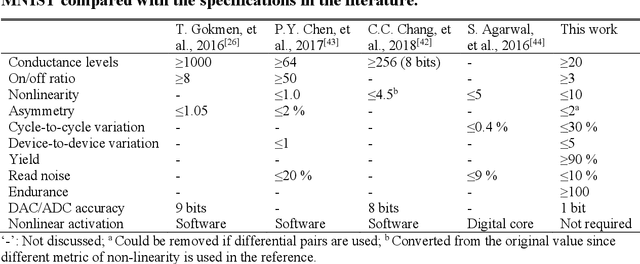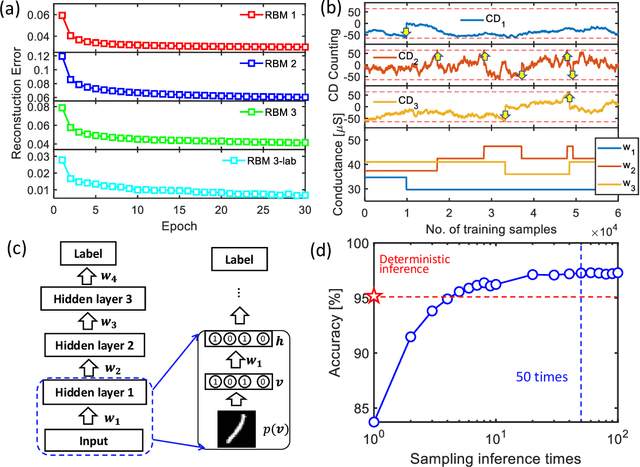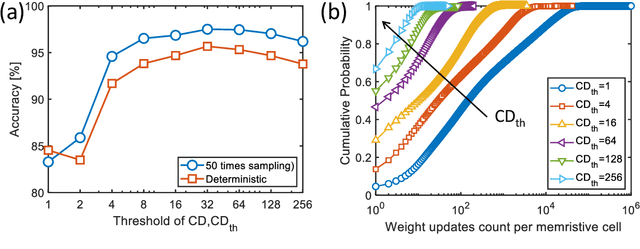Barak Hoffer
ClaPIM: Scalable Sequence CLAssification using Processing-In-Memory
Feb 16, 2023Abstract:DNA sequence classification is a fundamental task in computational biology with vast implications for applications such as disease prevention and drug design. Therefore, fast high-quality sequence classifiers are significantly important. This paper introduces ClaPIM, a scalable DNA sequence classification architecture based on the emerging concept of hybrid in-crossbar and near-crossbar memristive processing-in-memory (PIM). We enable efficient and high-quality classification by uniting the filter and search stages within a single algorithm. Specifically, we propose a custom filtering technique that drastically narrows the search space and a search approach that facilitates approximate string matching through a distance function. ClaPIM is the first PIM architecture for scalable approximate string matching that benefits from the high density of memristive crossbar arrays and the massive computational parallelism of PIM. Compared with Kraken2, a state-of-the-art software classifier, ClaPIM provides significantly higher classification quality (up to 20x improvement in F1 score) and also demonstrates a 1.8x throughput improvement. Compared with EDAM, a recently-proposed SRAM-based accelerator that is restricted to small datasets, we observe both a 30.4x improvement in normalized throughput per area and a 7% increase in classification precision.
Efficient Training of the Memristive Deep Belief Net Immune to Non-Idealities of the Synaptic Devices
Mar 15, 2022



Abstract:The tunability of conductance states of various emerging non-volatile memristive devices emulates the plasticity of biological synapses, making it promising in the hardware realization of large-scale neuromorphic systems. The inference of the neural network can be greatly accelerated by the vector-matrix multiplication (VMM) performed within a crossbar array of memristive devices in one step. Nevertheless, the implementation of the VMM needs complex peripheral circuits and the complexity further increases since non-idealities of memristive devices prevent precise conductance tuning (especially for the online training) and largely degrade the performance of the deep neural networks (DNNs). Here, we present an efficient online training method of the memristive deep belief net (DBN). The proposed memristive DBN uses stochastically binarized activations, reducing the complexity of peripheral circuits, and uses the contrastive divergence (CD) based gradient descent learning algorithm. The analog VMM and digital CD are performed separately in a mixed-signal hardware arrangement, making the memristive DBN high immune to non-idealities of synaptic devices. The number of write operations on memristive devices is reduced by two orders of magnitude. The recognition accuracy of 95%~97% can be achieved for the MNIST dataset using pulsed synaptic behaviors of various memristive synaptic devices.
 Add to Chrome
Add to Chrome Add to Firefox
Add to Firefox Add to Edge
Add to Edge